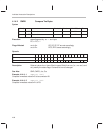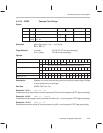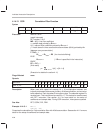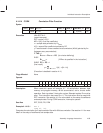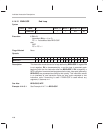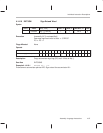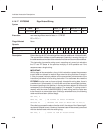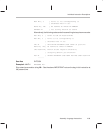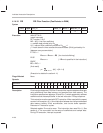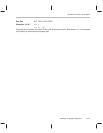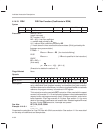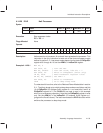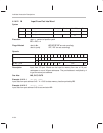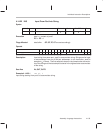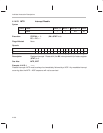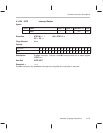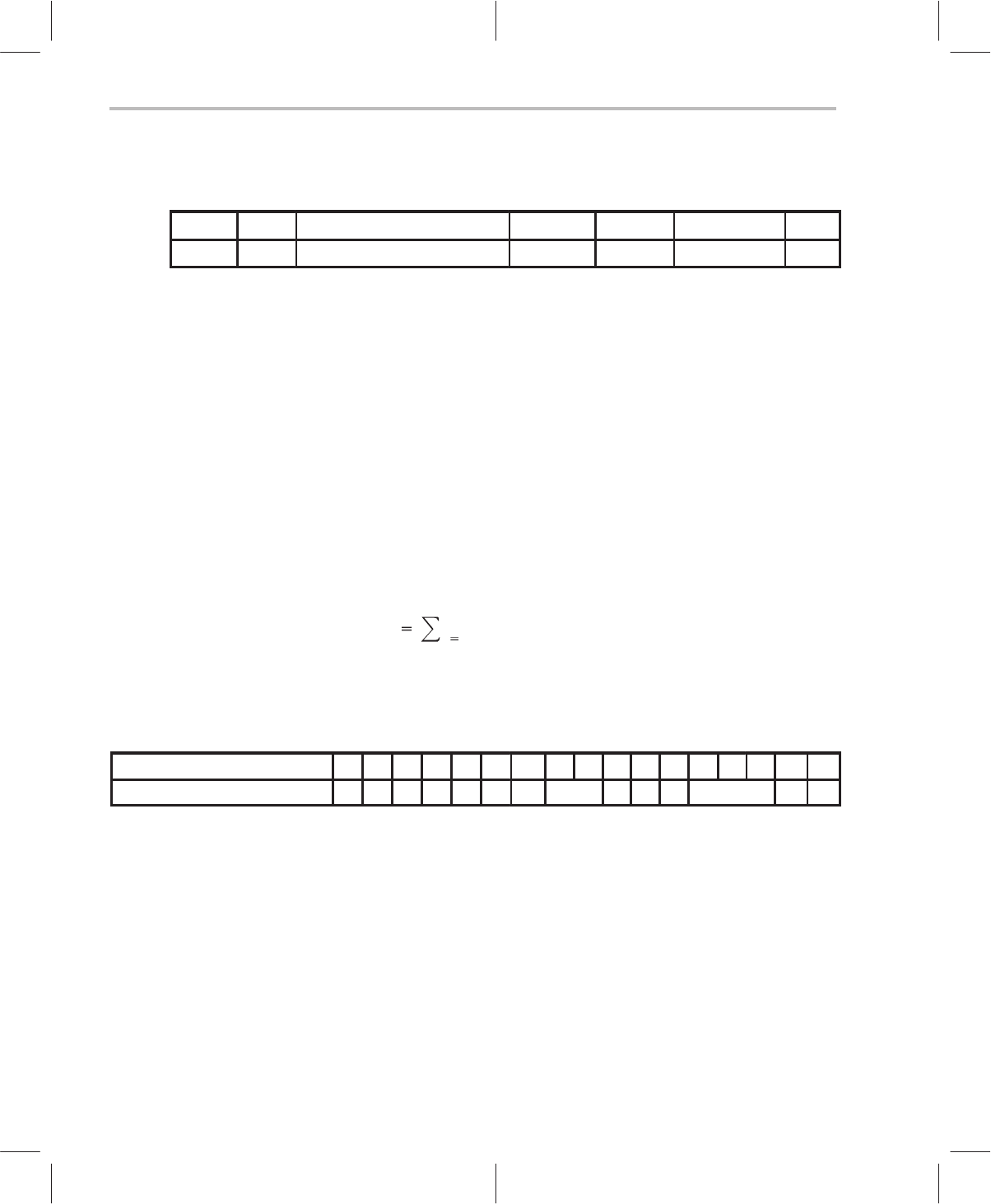
Individual Instruction Descriptions
4-100
4.14.18 FIR FIR Filter Function (Coefficients in RAM)
Syntax
[label] name dest, src
Clock,
clk
Word,
w
With RPT,
clk
Class
FIR A
n
, *R
x
2 1 2(n
R
+2) 9a
Execution
With RPT
N–2:
(
mask interrupts
)
RPT counter = N–2
MR =
h
[0] = first filter coefficient
x
= sample data pointed at by R
x
even
h
[1] = second filter coefficient pointed at R
x
even
+1
y
= result stored in three consecutive accumulators (32 bit) pointed by A
n
{between every accumulation}
IF TAG = 1
R
x
even
= R
x
even
+ R5 {for circular buffering}
ELSE
R
x
even
++ { if R
x
++ is specified in the instruction}
ENDIF
PC ⇐ PC + 1
{final result}
y
k
0..N–1
h
[
k
]·
x
[N
–
1
–k
]
(Execution is detailed in section 4.11)
Flags Affected None
Opcode
Instructions 16 15 14 13 12 11 10 9 8 7 6 5 4 3 2 1 0
FIR A
n
, *R
x
1 1 1 0 1 0 0 A
n
0 1 0 R
x
1 1
Description Finite impulse response (FIR) filter. Execute finite impulse response filter taps
using coefficients from data memory and samples from data memory. The
instruction specifies two registers, R
x
and R(
x+
1) which sequentially address
coefficients and the sample buffer in the two instruction FIR tap sequence.
This instruction must be used with RPT instruction. When used with the repeat
counter it will execute a 16 × 16 multiplication between two indirect addressed
data memory buffers, 32-bit accumulation, and circular buffer operation.
Executes in 2 instruction cycles.
Selected register R
x
must be even. This instruction also uses R(
x
+1). See
section 4.11 for more detail on the setup of coefficients and sample data.
During FIR execution, interrupt is queued.



